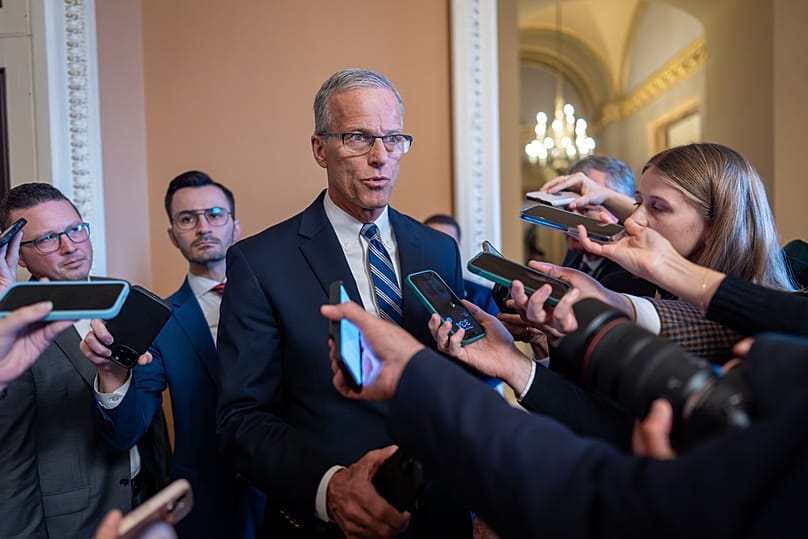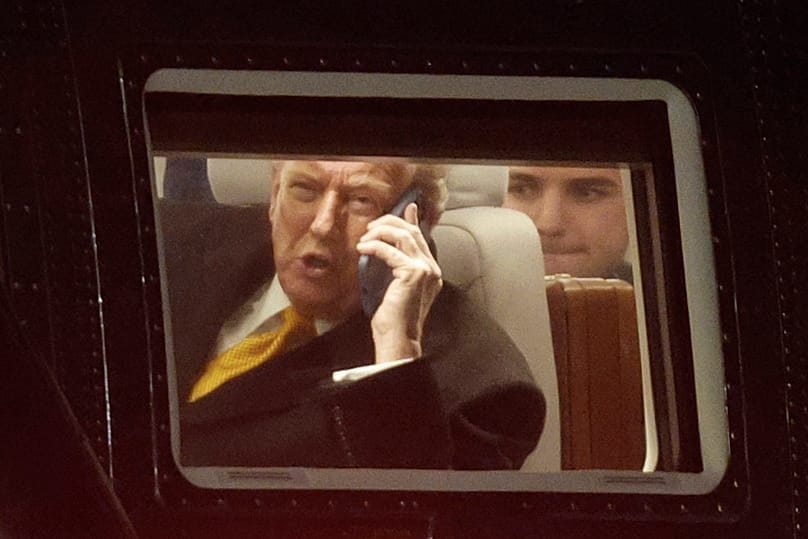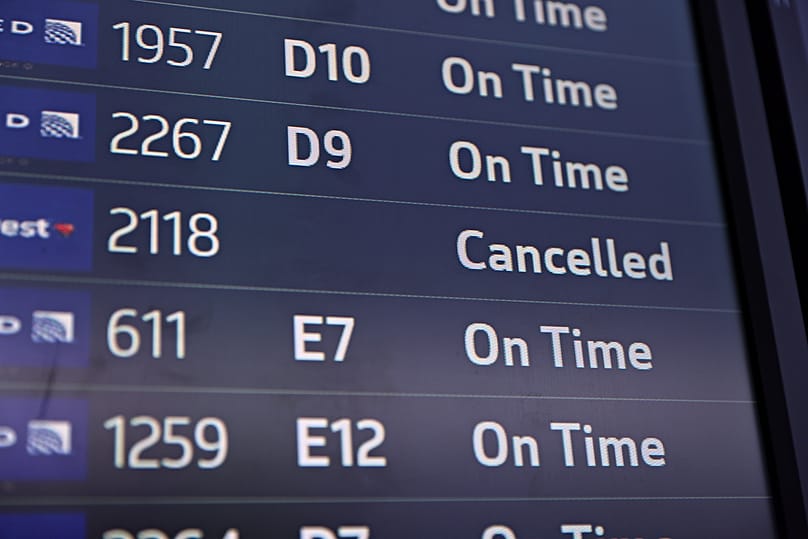The longest federal government shutdown in US history continues into its 40th day as Democrat and Republican senators clash over health care funding. The shutdown has left critical programmes like food aid unfunded, federal employees unpaid and caused major disruptions to critical sectors, like avia
The US government shutdown crossed into its 40th day on Sunday even as senators stayed in Washington for a gruelling weekend session hoping to find an end to the funding fight that has disrupted flights nationwide, threatened food assistance for millions of citizens and left federal workers without pay.
The Senate has so far shown few signs of progress over a weekend that could be crucial for overcoming an impasse over health care funding.
Republican leaders are hoping to hold votes on a new package of bills that would reopen the government into January while also approving full-year funding for several parts of government. But the necessary Democratic support for that effort was far from guaranteed.
“We’re only a handful of votes away” from passing a bill to reopen the government, said Senate Majority Leader John Thune on Saturday.
Still, Democratic leaders are pushing hard for an extension of subsidies for health plans offered under the Affordable Care Act marketplace.
Republicans have rejected that offer, but signalled openness to an emerging proposal from a small group of moderate Democrats to end the shutdown in exchange for a later vote on the “Obamacare” subsidies, which makes coverage more affordable.
For those enrolled in Affordable Care Act exchanges, premiums on average are expected to more than double next year if Congress allows the enhanced subsidies to lapse.
Vermont Senator Bernie Sanders, an independent who caucuses with Democrats, said the pledge to hold a vote on extending the health care subsidies would be a “wasteful gesture” unless “you have the commitment of the speaker of the House that he will support it and that the president of the United States will sign it.”
President Donald Trump has made it clear that he is unlikely to compromise any time soon. He pressed Republicans again over the weekend to get rid of the Senate's filibuster rules, which prevent the upper chamber of Congress from advancing on most legislation without the backing of at least 60 Senators.
Bipartisan negotiations continue
The small group of Democrat lawmakers, ranging from 10 to 12, were still negotiating among themselves and with Republicans to explore the possibility of bridging gaps and reopen the government. Republicans only need to flip five of their votes.
They’ve been discussing bills that would pay for parts of the government, including funding food aid and veterans programmes, the legislative branch and extend funding for everything else until December or January.
The agreement would only come with the promise of a future health care vote, rather than a guarantee of extended subsidies, which is what Senate Democrats are seeking.
It was unclear whether enough Democrats would support such a plan. Even with a deal, Trump appears unlikely to support an extension of the health benefits. Republican House Speaker Mike Johnson also said this past week that he would not commit to a health vote.
Major disruptions to crucial services
US airlines cancelled more than 2,500 weekend flights by Saturday evening as the Federal Aviation Administration’s (FAA) mandate to reduce air traffic because of the shutdown showed no signs of easing.
The slowdown at many of the nation’s busiest airports did not cause immediate widespread disruptions. But it deepened the impact felt by the nation’s longest ever federal shutdown.
Cancellations jumped on Saturday — typically a slow travel day — to more than 1,500, following just over 1,000 the previous day, according to flight tracking platforms. By the evening US airlines had already cancelled another 1,000-plus for Sunday.
Airports in Atlanta and Chicago, as well as Charlotte, North Carolina and New Jersey, saw numerous disruptions throughout the day.
Ongoing staffing shortages in radar centres and control towers added to the cancellations and delays at several East Coast airports, including those around New York City, like Newark.
Not all the cancellations were due to the FAA order, and those numbers represented just a small portion of the overall flights nationwide. But they are certain to rise in the coming days if the shutdown continues.
The FAA said the reductions impacting all commercial airlines started at 4% of flights at 40 targeted airports and will be bumped up again on Tuesday, likely hitting 10% by Friday.














